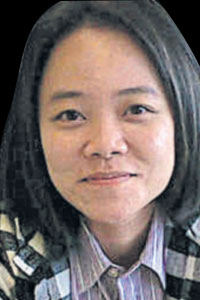
It's something of a surprise that, until now, the United Nations has never released a recommendation on physical activity for children under the age of five. Now, at least, the international agency realises that it is important to have proper guidelines for little ones who, after all, represent the future of our planet.
Recently, the World Health Organisation (WHO), under the United Nations, released its first-ever recommendations for under-fives, covering various subjects from screen time to "tummy time".
The recommendations regarding screen exposure are among the more controversial of the newly released guidelines. The WHO suggests no screen time at all for babies under a year old. For children under five, the limit should be one hour per day. And, of course, less is better.
The WHO is not the only organisation recommending less screen time for the very young. Three years ago, the American Academy of Pediatrics suggested that children who are under 18 months old should avoid screen time other than video chats and that parents of children under two years old should only opt for high-quality programming with educational value.
The WHO also has advice as to how much physical activity kids should have each day. For infants under one, the recommendation is at least 30 minutes of physical activity daily, including being put in the prone position -- or tummy time -- for those too young to move around.
Although such recommendations sound pretty basic, they are often easier said than done.
Throughout the world, especially in developing countries like Thailand where a large percentage of the population still struggles to make ends meet, parents have to work long hours, sometimes from first thing in the morning until late at night. This leaves them with scant opportunity for quality time with their kids. Hiring a reliable nanny is beyond the means of many. So the easiest thing to do is distract children with a mobile device so that they can spend hours glued to the screen while parents do what they must to get food on the table.
The WHO's screen time recommendation has sparked debate, though. Director of Oxford Internet Institute at the University of Oxford in the UK said the guidelines failed to consider the potential benefits of digital media. "Not all screen time is created equal," he said.
The Royal College of Paediatrics and Child Health in Britain also said the WHO's data was not strong enough for experts to set any standards for appropriate screen time.
The WHO could have gone a tad deeper into detailing the potential harm caused by too much screen time, rather than just saying that its recommendation was aimed at addressing the increase in sedentary behaviour among the general population.
But let's stop debating for a moment. Zero screen time for infants? As little screen time for small kids as possible? More exercise for people of all ages? We're all well aware of these health mantras, aren't we?
If these are just matters of common sense, we should be able to practise them on a regular basis, without the need for the WHO to issue recommendations.
Thais have a saying that children are like pieces of white cloth. They are blank, ready to be shaped by their parents. If we want children to spend less time on mobiles, it's not enough to tell them. We have to teach them by showing them.
Parents are the first, and usually most important, role model. This is another classic mantra. Children will be more into physical activity if their parents are. But if mum and dad spend most of the time sitting on the sofa, their kids are more likely to join them there.
Likewise, if parents want their kids off Facebook at the dinner table, they have to take the lead. Developmental and behavioural paediatrician Dr Nanthakorn Eu-ahsunthornwattana said that when it comes to handling the use of digital devices by their kids, parents should be the key. Not only should they select what, when and how much is best, they should also set the right examples.
Parents are the first to direct a child's life and the first to be responsible for them. If children see their parents spending all their time on digital devices, of course they will do the same.
So what if the WHO's recommendations are too broad or too lame. Don't blame them. Take responsibility. If they are telling us what we already know, let's do it already.
Arusa Pisuthipan is the deputy editor of the Life section of the Bangkok Post.
